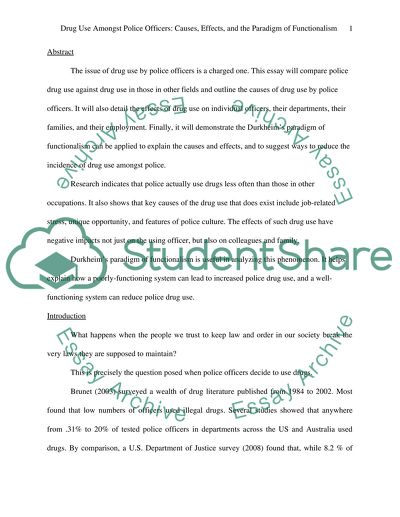Cite this document
(“Drug Use Amongst Police Officers Essay Example | Topics and Well Written Essays - 2000 words”, n.d.)
Drug Use Amongst Police Officers Essay Example | Topics and Well Written Essays - 2000 words. Retrieved from https://studentshare.org/miscellaneous/1512877-drug-use-amongst-police-officers
Drug Use Amongst Police Officers Essay Example | Topics and Well Written Essays - 2000 words. Retrieved from https://studentshare.org/miscellaneous/1512877-drug-use-amongst-police-officers
(Drug Use Amongst Police Officers Essay Example | Topics and Well Written Essays - 2000 Words)
Drug Use Amongst Police Officers Essay Example | Topics and Well Written Essays - 2000 Words. https://studentshare.org/miscellaneous/1512877-drug-use-amongst-police-officers.
Drug Use Amongst Police Officers Essay Example | Topics and Well Written Essays - 2000 Words. https://studentshare.org/miscellaneous/1512877-drug-use-amongst-police-officers.
“Drug Use Amongst Police Officers Essay Example | Topics and Well Written Essays - 2000 Words”, n.d. https://studentshare.org/miscellaneous/1512877-drug-use-amongst-police-officers.


